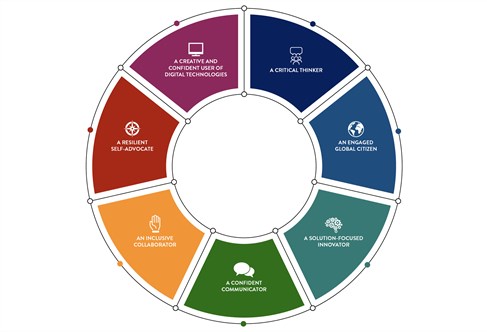Our education for sustainable development (ESD) approach focuses on real-world themes of student concern such as the cost of living, wellbeing, equalities and the climate and ecological emergency.
Designed to enhance experience and employability, every student will develop key transferable skills and values that empower our graduates with the individual and collective agency for wider-scale positive social change.
We have embedded these skills and values into our Brighton Graduate Attributes. Through these attributes, all students are supported to develop skills and qualities to enable them to become:
- critical thinkers
- engaged global citizens
- confident communicators
- inclusive collaborators
- resilient self-advocates
- solution-oriented innovators
- creative and confident users of digital technologies.
Staff and students across our academic schools are working together to actively engage with the UN SDGs.
- Our School of Architecture, Technology and Engineering has advanced sustainable architecture practices.
- Our School of Business and Law embeds the SDGs in its professional practices and research activities.
- The School of Humanities and Social Science has introduced modules framed around specific SDGs.
- The School of Education, Sport and Health Sciences (formerly the School of Sport and Health Sciences) has committed to the Health Care Without Harm Nurses Climate Challenge Europe and takes a sustainable approach to practice in sport and healthcare.
And there are many more example from across our university community.
Following approval by our University Executive Board in 2021, the university’s Global Challenges programme has provided a strategic framework to integrate the themes and issues of the SDGs into our teaching and learning, research and knowledge exchange practices. Our institutional approach to education for sustainable development (ESD) draws on the pedagogic approaches and strategic frameworks for sustainability teaching as developed by both UNESCO and QAA.
Formed of professional services departments, education and student experience staff and research leadership representatives, the Global Challenges Steering Group was established to integrate the SDGs within our teaching, research and knowledge exchange. The Steering Group has developed and coordinated an institutional-wide approach to ESD, making support available to staff across the university and encouraging further professional development in ESD.
Our university actively creates space for open dialogue and collaboration around ESD and the SDGs. This year, the Global Challenges Research and Knowledge Exchange workshop enabled academics to discuss how to deliver on a joint institutional approach to meeting the GC corporately through research and community links, and share best practice for integrating research-led teaching and ESD into the curriculum, ensuring ESD is embedded across all subjects and schools.
